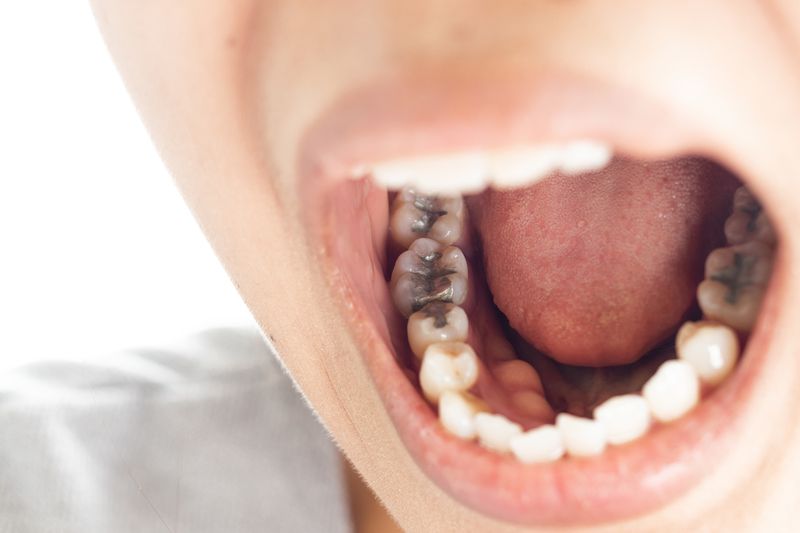Essential Guide to Preventing Cavities in Children’s Teeth

Preventing cavities in children is paramount in promoting a lifetime of healthy teeth and gums. This guide outlines practical strategies for maintaining oral health in young ones, ranging from establishing effective brushing habits to understanding the benefits of fluoride and routine dental check-ups at practices like South Temple Dental. Additionally, it will detail how diet and sealants play pivotal roles in safeguarding children's dental health.
Establishing Proper Brushing Habits
Instilling good brushing habits early on is critical in preventing dental cavities. Children should brush their teeth at least twice a day using a soft-bristled toothbrush. Parents can start brushing their child’s teeth as soon as the first tooth appears, using a rice-sized smear of fluoride toothpaste for children under three years old and a pea-sized amount for children aged three to six. Brushing should last for two minutes, covering all surfaces of the teeth. Parents should supervise the brushing process to ensure that children learn the correct technique and do not swallow toothpaste.
The Role of Fluoride
Fluoride plays a significant role in preventing cavities by strengthening tooth enamel and making it more resistant to acid attacks from bacteria in the mouth. It can be found in various forms, including toothpaste, mouth rinses, and community water supplies. For children particularly prone to cavities, a dentist might recommend fluoride treatments during routine check-ups. These treatments provide a higher dose of fluoride than toothpaste and are applied directly to the teeth, enhancing their protective benefits.
Routine Dental Check-Ups
Regular dental visits are crucial for maintaining oral health in children. These check-ups allow dentists to detect early signs of tooth decay and implement preventive measures. South Temple Dental, for instance, provides comprehensive services that assess the health of children’s teeth and gums, offering professional cleanings and preventive treatments like fluoride application. Parents should schedule their child’s first dental visit by their first birthday or when their first tooth appears, with subsequent visits recommended every six months or as directed by their dentist.
Diet's Impact on Dental Health
Diet significantly affects oral health, and certain foods can increase the risk of cavities. Sugary foods and beverages, such as candy, cookies, soda, and fruit juice, can contribute to tooth decay when bacteria in the mouth turn sugar into acid. Instead, children should eat a balanced diet that includes plenty of fruits, vegetables, lean proteins, and whole grains. Additionally, cheese and yogurt are excellent for dental health as they contain calcium and phosphates, which help remineralize teeth. Parents should also ensure that children drink plenty of water, especially if it is fluoridated, to help wash away food particles and bacteria.
The Benefits of Dental Sealants
Dental sealants are another effective preventive measure against cavities in children. Sealants are thin, protective coatings applied to the chewing surfaces of the back teeth (molars), where most cavities in children are found. These sealants quickly bond into the depressions and grooves of the teeth, forming a protective shield over the enamel. Applying sealants can significantly reduce the risk of cavities in children’s molars by keeping out food particles and bacteria. They are particularly beneficial for children who have deep crevices in their teeth or who are at higher risk for tooth decay.
Teaching Children about Oral Hygiene
Education plays a vital role in encouraging lifelong dental health. Parents and caregivers should teach children about the importance of taking care of their teeth and gums from an early age. This includes discussing the effects of poor oral hygiene and motivating children to maintain their dental health. Interactive tools such as brushing charts, educational games, and books about visiting the dentist can make learning about oral hygiene fun and engaging for children.
Maintaining the health of children’s teeth requires a proactive approach encompassing proper brushing, regular use of fluoride, routine dental check-ups, a balanced diet, and the application of sealants. By adopting these practices, parents can help ensure their children enjoy a lifetime of healthy smiles.
Ready to give your child a head start on a lifetime of healthy smiles? Our team is dedicated to making dental visits a positive experience for your child, ensuring they grow up with the strong, healthy teeth they deserve. Contact us today to learn more about our children's dental care services.


Connect With Us on Facebook
Areas We Serve
Downtown Salt Lake City
84103, 84116, 84104, 84101, 84111, 84102, 84112, 84113, 84108, 84105, 84115, 84104, 84103
Business Hours
- Monday
- -
- Tuesday
- -
- Wednesday
- -
- Thursday
- -
- Friday
- -
- Saturday
- Closed
- Sunday
- Closed
All Rights Reserved | South Temple Dental
Dentist in Downtown Salt Lake City, Utah
